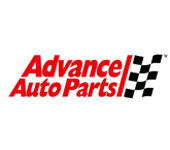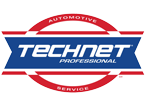
Archive for August 2018Fuel Saving Tip: Auto Myths Around VenicePosted August 26, 2018 10:13 AM
Car Doc On The Island How Your Check Engine Light WorksPosted August 19, 2018 11:34 AM
Car Doc On The Island Upgrade Shocks for Better Handling in VenicePosted August 12, 2018 12:31 PMMany Venice drivers probably don't think of their shock absorbers as an important safety system; but that's just what shocks and struts are. They're all about ride control – keeping your vehicle tires in contact with the road and managing body motion. Car Doc On The Island Tacky or Techie? The Tachometer.Posted August 6, 2018 10:49 AMThere's a gauge that many vehicles have that says RPM on it. And there are a lot of people who either don't pay any attention to it or don't even know what it is. Here's why it's a good gauge to know about. It's called a tachometer, and that "RPM" label means it is measuring how many revolutions per minute (RPM) the engine is turning. Automotive experts know that a vehicle's engine can be damaged if it turns too fast (revving too high) or too slowly ("lugging" the engine). A tachometer (sometimes called a tach) is almost a "must-have" gauge for vehicles with a manual transmission; the driver has to manually change gears; the tach helps the driver know when revolutions are in the optimal range. Some say you don't need a tachometer if you drive a vehicle with an automatic transmission. It's true that most drivers of automatics don't even look at it. But there are times when paying attention to the tach can help you prevent an expensive repair. Here's a good example. Manufacturers now build many of their automatic transmission vehicles with shift paddles. They let you shift gears without a clutch. That's manual shifting, and drivers need to know they're not revving the engine too high. That's where the tachometer comes in, since it shows you visually when you are in the red zone (RPM too high). Here's another way the tach can help you: fuel economy. Generally speaking, the lower the RPM, the better the fuel economy. It's not good to go too low, of course, and the tachometer will help you find that spot of maximum efficiency. You can also spot problems by paying attention to the tach. When your vehicle stays in first gear longer than usual (higher reading on the tach), then the RPM dip lower than usual after shifting, it may be that your vehicle's transmission is skipping a gear. Plus, if your vehicle's RPM go up but your speed doesn't, it could mean your transmission is slipping. Either situation should be checked by a trained technician. If your commute takes you down some long grades, you might like to put your vehicle in a lower gear to help slow down the car (and not burn up the brakes). Having a tachometer keeps tabs on when your engine is revving too high. So, consider the tachometer a "bonus" gauge. It's one more helpful assistant that can help you spot and prevent problems in your vehicle. Car Doc On The Island
419 South Tamiami Trail
Venice, FL 34285
(941) 786-1595
| ||
SearchArchiveApril 2016 (16)May 2016 (5) June 2016 (4) July 2016 (4) August 2016 (5) September 2016 (4) October 2016 (5) November 2016 (4) December 2016 (4) January 2017 (5) February 2017 (4) March 2017 (4) April 2017 (5) May 2017 (4) June 2017 (4) July 2017 (5) August 2017 (4) September 2017 (3) October 2017 (5) November 2017 (4) December 2017 (3) January 2018 (5) February 2018 (4) March 2018 (4) April 2018 (5) May 2018 (4) June 2018 (4) July 2018 (5) August 2018 (4) September 2018 (5) October 2018 (4) November 2018 (4) December 2018 (5) January 2019 (5) February 2019 (4) March 2019 (5) April 2019 (4) May 2019 (4) June 2019 (5) July 2019 (4) August 2019 (4) September 2019 (5) October 2019 (4) November 2019 (4) December 2019 (5) January 2020 (5) February 2020 (4) March 2020 (5) April 2020 (4) May 2020 (5) June 2020 (4) July 2020 (4) August 2020 (5) September 2020 (4) October 2020 (4) November 2020 (5) December 2020 (4) January 2021 (6) February 2021 (4) March 2021 (4) April 2021 (4) May 2021 (5) June 2021 (4) July 2021 (4) August 2021 (5) September 2021 (4) October 2021 (5) November 2021 (4) December 2021 (4) January 2022 (6) February 2022 (4) March 2022 (4) April 2022 (4) May 2022 (5) June 2022 (4) July 2022 (5) August 2022 (4) September 2022 (4) October 2022 (5) November 2022 (4) December 2022 (4) January 2023 (5) February 2023 (4) March 2023 (4) April 2023 (5) May 2023 (4) June 2023 (4) July 2023 (5) August 2023 (4) September 2023 (4) October 2023 (5) November 2023 (4) December 2023 (5) January 2024 (5) February 2024 (4) March 2024 (5) April 2024 (2) | CategoriesAir Conditioning (12)Alignment (11)Alternator (4)Auto Safety (6)Automotive News (7)Battery (14)Brake Service (1)Brakes (14)Cabin Air Filter (5)Check Engine Light (3)Cooling System (14)Customer Detective Work (1)Dashboard (3)Diagnostics (4)Diesel Maintenance (1)Differential Service (3)Drive Train (7)Emergency Items (1)Engine Air Filter (2)Exhaust (7)Fluids (16)Fuel Economy (9)Fuel Saving Tip: Slow Down (1)Fuel System (37)Headlamps (2)Inspection (6)Keys to a long lasting vehicle (4)Maintenance (43)Monitoring System (3)Oil Change (4)Older Vehicles (4)Parts (5)Safe Driving (1)Safety (5)Serpentine Belt (6)Service Intervals (9)Service Standards (10)Shocks & Struts (8)Spark Plugs (1)Steering (9)Suspension (3)Timing Belt (6)Tire Rotation and Balancing (3)Tires (6)Tires and Wheels (36)TPMS (2)Transmission (5)Trip Inspection (2)Warranty (1)What Customers Should Know (54)Wheel Bearings (1)Windshield Wipers (8)Winter Prep (4)Winter Tires (1) | |
What our clients are saying about us
We have established longterm and stable partnerships with various clients thanks to our excellence in solving their automotive needs!
Car doc is my new service provider! Stacy was wonderful keeping me posted on each procedure that needed to be completed on my car. She explained in layman’s terms that I could understand easily. I also thought that I received excellent service at a fair and honest price. I would highly recommend car doc! Marlene koumbis

Love this place! Very honest, helpful employees! Stacy and Desiree are the best!




 is great. When you get one of those e-mails that's going around telling you how to save gas, try to think it through.
is great. When you get one of those e-mails that's going around telling you how to save gas, try to think it through.





